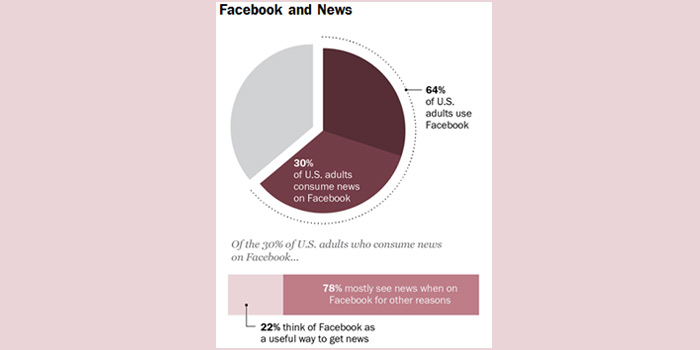In the most unsurprising story of the day, it turns out that Facebook users aren’t on it for the news. But they end up stumbling upon headlines anyway. And the rest of the folks who’re actually interested in world events go to Twitter (because it’s better at delivering breaking stories) maybe?
But the Pew Research Center study we’re referring to is not about the competition between Twitter and Facebook. It’s more of a survey which takes into account the manner in which people interact with news on the social networking site.

This study is especially significant because of the hashtag feature which was introduced back in June. Say, you published a post headed by the words ‘Is this an #Instragram fail?’ on Facebook. If a reader clicked on the hashtagged word, whatever other users have made public or visible to the searcher with the same #Instagram term will appear.
It works very similarly to the way Twitter’s trending topics rolls. Zuckerberg & Co. even took a leaf from the micro-blogging website when it came to unveiling the ability for Facebook members to gain Followers (different from friends) and embedding posts. It looks like the company is desperate to get into the news breaking game too.
Here are some interesting findings from the Pew survey:
– Facebook news consumers are turned off when people express their political views on the site. So don’t do it if you want to be popular here.
– Users are more prone to clicking on headlines they find surprising or entertaining as well as those recommended by friends.
– Young adults between 18 and 29 years are more likely to engage with news on Facebook as compared to the older crowd.
– The more time people spend on the social network, higher are the chances of them bumping into news stories.
Curious about the nitty-gritty details? Here’s the link to the report which was conducted in the August to September, 2013 time period and involves 5,173 participants residing in the US.
